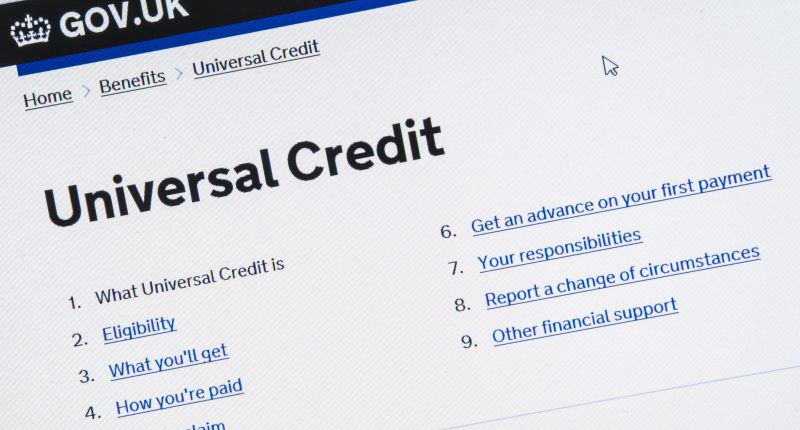MILLIONS of Brits will be impacted by some major changes to Universal Credit and benefits in 2024.
From harsher rules for the unemployed to a payment boost from April, we round up all you need to know from the announcements.
Benefit payments will rise by 6.7% from April but the benefits cap will remain frozen at its current level meaning thousands will miss out on a payment boost.
Those on legacy benefits including tax credits and income support will be contacted to switch to Universal Credit throughout next year.
New help for renters and changes to the application process for those wishing to claim PIP will also be rolled out.
Here’s everything you need to know.
Read more in money
Benefits to rise in line with inflation
Benefit payments will rise by 6.7% from April, in line with the consumer price index (CPI) level of inflation for September 2023.
The payment boost comes into effect in April 2024 and hikes the payments for the average family on Universal Credit by £470 a year.
But remember, the exact amount your payments will rise by will depend on whether you qualify for extra elements as well as your financial circumstances.
Don’t forget to check that you’re getting all the benefits you’re entitled to by using a free benefits checker, as this could boost your budget more.
Most read in Money
Benefits cap frozen
The benefits cap will remain frozen at its current level from April 2024 – meaning 85,000 could be up to £53 worse off.
The benefit cap, first introduced in 2013, is a limit on the total amount households can get.
It was frozen from 2016 until this year, when the government increased it to £22,020 a year for families, or £25,323 in London, and £14,753 for single adults, or £16,967 in the capital.
But there will be no similar rise next year, leaving 85,0000 on Universal Credit worse off.
More people are set to hit the cap in April when benefit payments rise in April.
Managed migration continues
The DWP is in the process of moving people on so-called “legacy benefits” such as tax credits onto Universal Credit.
The move is known as “managed migration” and started in April following a successful pilot in Harrogate, Yorkshire, in July 2019.
Over two million people will eventually be moved on to Universal Credit by March 2025.
However, those claiming employment and support allowance (ESA) and not on tax credits will be moved by 2028.
Local housing allowance boost
The government will increase Local Housing Allowance for the first time since 2020 from April 2024.
Local Housing Allowance (LHA) sets the maximum amount people renting from a private landlord can claim in Housing Benefit or Universal Credit.
Around 38% of England‘s 4.6million private renters receive housing benefit.
The amount you can claim depends on the area you live in and the size of the property you rent.
Local Housing Allowance will be increased to cover the cheapest 30% of local market rents.
This means anyone renting a home that is among the cheapest 30% of private rental properties in their area should be able to cover their entire rent with housing benefit.
Surplus earnings threshold extended
Universal Credit claimants will continue to get the higher surplus earnings threshold of £2,500 until April 2025.
Surplus earnings are taken into account in your next monthly assessment period for Universal Credit.
For example, if your monthly earnings are more than £2,500 over where your payment stopped – the current threshold – this becomes “surplus earnings”.
These surplus earnings are then carried forward to the following month, where they count towards your earnings.
If your regular income and surplus earnings are then still over the amount where your payment stops, your Universal Credit payment will be affected.
Tighter benefit rules
Millions of Brits could be stripped of their benefits if they fail to find a job within 18 months.
It’s part of plans to help people with long-term conditions, disabilities or long-term unemployment to look for and stay in work.
More than £1.3billion in funding is being offered to 300,000 people who have been unemployed for more than a year.
Those who don’t get a job within 18 months will be forced to take on work experience under plans to get more people into employment.
And households who don’t comply will have their benefits, including access to free prescriptions and legal aid, cut off.
Changes to PIP applications
The Department for Work and Pensions (DWP) is continuing to work to reduce waiting times for new personal independence payments (PIP) claims.
In August, the DWP said it is trialling the use of online applications for new PIP claims.
This is set to be extended until November 2024 to ensure that new claimants aren’t facing “excessive wait times”.
New PIP claims are currently taking 13 weeks from initial submission to award decision letters being sent out.
Read more on The Sun
But it’s hoped that when online applications open for all the application journey could reduce decision-making time and shorten the amount of time it takes for claimants to hear back.
Personal Independence Payments (PIP) is a disability benefit that is given to those with long-term mental or physical health problems or disabilities.










